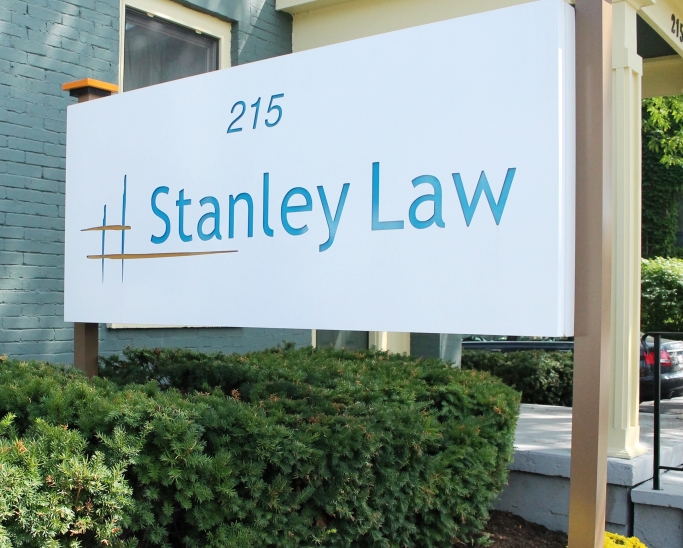The Seven Biggest Mistakes Claimant’s Make

by Attorney Robert Geyer, Stanley Law Offices and a former Employer/Carrier’s Attorney
What do you do when you sustain a work-related injury? Besides getting the medical treatment that is needed, you must make certain that you take the proper steps to ensure your workers’ compensation claim is properly filed and handled. Failure to do so can result in a loss of benefits or even denial of your claim. If you want to avoid common claimant mistakes, read on…
I represented employers and their insurance carriers for almost 20 years. From my experience, the following are the most important issues that claimant’s must consider.
1. The Carrier’s Adjuster is Not Your “Friend.”
Often times a claimant’s first introduction to the world of Workers’ Compensation is through the claims adjuster who works for the insurance carrier. These people are not necessarily evil. In fact, to the contrary. They are usually very easy to work with. But regardless of how nice they may be, it must always be remembered that the insurance adjuster’s primary goal is to see that the carrier pays as little as possible. The adjuster is not there to help a claimant. While sometimes an adjuster may be helpful, that occurs only when doing so is in the best interest of the carrier. The adjuster’s job is to keep costs down. The adjuster is not there to make sure a claimant gets the best treatment or gets the proper amount of indemnity benefits.
2. Insurance Carriers Have Skilled and Well-Trained Attorneys Representing Them and So Should You.
In addition to recognizing that the insurance carriers are not your friend, you must realize that in addition to having skilled adjusters, carriers also have skilled and well-trained attorneys that represent them through the whole process. These are attorneys who generally do nothing but handle Workers’ Compensation defense claims. These attorneys are highly skilled and knowledgeable, with a primary goal of ensuring that the insurance carrier pays as little as possible. If the insurance carrier has highly trained and skilled attorneys working for them, a claimant should do no less.
3. The Workers’ Compensation Board and the Law Judge does not represent your interests.
One of the biggest claimant mistakes made, is to assume that the Workers’ Compensation Board and the Law Judge are their friends or that the Board is there to help them. While it is certainly true that the Board may assist an unrepresented claimant, that assistance is very limited. The Board and the Law Judge’s do not represent claimant’s and a claimant’s failure to retain an attorney can be detrimental. I represented employers and insurance carriers for almost 20 years and witnessed firsthand how the lack of an attorney can result in negative consequences to claimants. Retaining an experienced Workers’ Compensation attorney is probably the most important thing a claimant can do in relation to his/her claim.
4. Timeliness is critical in relation to all aspects of a claim. Failure to raise issues or file documentation timely can be fatal to one’s claim.
Most injured workers are unfamiliar with the Workers’ Compensation Laws and Rules and Regulations. Even attorneys, usually those who do not specialize in Workers’ Compensation Law, are often unfamiliar with the detailed aspects and intricacies. Failure to act timely and appropriately can be fatal to one’s claim.
Timeliness in Your Workers’ Compensation Claim Is Important
For example, failure to report an in jury within 30 days of its occurrence can result in the claim being denied. Failure to timely file a claim with the Workers’ Compensation Board can also result in dismissal.
In the realm of Workers’ Compensation Law, failure to take appropriate and timely action may result in a loss of treatment and monetary benefits. That is why it is so important to retain an attorney as soon as possible after a work-related injury occurs. If one waits until it is absolutely necessary, it may be too late.
Workers’ Compensation attorneys, like those at The Stanley Law Offices, do not charge a fee directly to the claimant. Any fee is an amount approved by the Law Judge, which is a very small portion of the awards claimants are paid. If no money is awarded to a claimant, then the attorneys receive nothing.
5. An “Independent Medical Examiner” (IME) has a sole mission of benefitting the carrier. The IME is not there to help you. The IME is not your friend.
Often, a carrier will have a claimant examined by an IME. What is the purpose of an IME? It is very simple. The IME is used for one purpose and one purpose only – to save the carrier money.
Independent Medical Examiners Are Not There To Help You
An IME, no matter how nice he or she may be, is not there to help you. They are being paid by the carrier to produce an Independent Medical Report. In theory that is a good thing. But even though the insurance carrier has no direct way of influencing the IME’s decision and report, the reality is that the IMEs are hired by the carriers and paid by the carriers. And the fees received by the IME’s are often many times greater than what the treating physician is paid. And if an IME does not produce a report that the carrier likes the carrier will often take punitive actions against the IME by not using him or her again. Many IME physicians are no longer involved in the active practice of medicine. They only work as IMEs for the benefit of insurance carriers.
While it would be nice to think that an IME physician would be honest, the reality is that many of these physicians no longer have an active medical practice, and their only source of income is the money earned through Independent Medical Examinations. Because of this, the IMEs have a great incentive to produce reports that are favorable to the carriers.
Therefore, no matter how nice an IME may seem, one must realize that they are being paid by the insurance company, whose primary goal is to see that a claimant receives as little as possible.
6. Do not complete any forms sent by the Carrier unless and until they have been reviewed by your attorney.
Carriers will often send claimants documents and forms, requesting that claimant sign same and return same to the carrier. Many of those forms are perfectly acceptable, and even needed for the carrier to provide a claimant with the treatment and benefits he or she deserves. However, the carrier may also slip in questions that they will attempt to use against a claimant at a later time. So, before any documentation is completed and returned to the carrier the documents must be reviewed by an attorney. That is the only way of ensuring that a claimant is not unknowingly providing the carrier with information that they may try to use against the claimant in the future.
7. Settling a claim is not always the best option.
Often, a carrier will attempt to close a claim with what is known as a Section 32 Lump Sum Settlement. These settlements can be a good thing, as they allow claimants to receive a large lump sum award and they no longer have be concerned about issues that might arise resulting in awards being reduced. Further, the medical portion of the claim can also be settled, in which the claimant will receive a lump sum amount for payment of future medical.
Settling a claim, while often enticing and an attractive option, it is not always the best option. This is especially true if a claimant has not yet reached maximum medical improvement and has not yet been classified with a permanent partial or permanent total disability. Further, regardless of whether the issue of classification has been resolved, it is not always beneficial to close the medical portion of a claim. This is especially true if future extensive treatment, such as surgery, is anticipated. In those cases, it may be best to close only the indemnity portion of the claim and leave the medical portion of the claim open. Not all carriers are willing to do that, but that is often an option.
The bottom line is that while closing a claim with a lump sum settlement may be the best option, sometimes it is not. And it is important to consider all of one’s options and potential future ramifications in relation to any settlement.
Summary of The Seven Most Common Mistakes During a Workers’ Compensation Case
The above Seven “mistakes” are the most common, but certainly are not the only mistakes that claimants make. The best way to ensure that these mistakes are not made is by retaining a qualified attorney, like those at The Stanley Law Offices.
Stanley Law Offices is a personal injury firm who has a dedicated and experienced workers’ compensation team. With offices in Syracuse, Watertown, Rochester, Binghamton, and Montrose, PA. We’ll come to you if you can’t come to us, or schedule a virtual FREE consultation at your convenience. If you have any questions, or want to discuss your workers’ compensation case directly with an attorney at The Stanley Law Offices, please contact us at 1-800-608-3333. Don’t go it alone. Phone.













